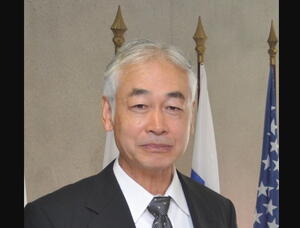Facing a double challenge
17 Sep 2010
-
Osamu Motojima, ITER Director-General
Today is Friday 17 September and it has been one month, exactly, since I arrived in Provence with my family. Time has passed with the speed of an arrow ...
Taking over a new task, settling into a new country, a new home, is not always easy. I am very grateful for the support my wife and I have received from you all, here at ITER, and from our many friends around the world. I thank you with all my heart.
Today, I would like to address some important issues. As you all know by now, I have placed cost containment and cost saving on the top of my priorities list. Council has asked for it and it is commanded by wisdom.
The special task force and the dedicated working group that have been created are pursuing their intensive effort towards containing the cost of ITER—a task that is difficult but also absolutely necessary.
The challenge we face is double: we have to contain the cost of in-kind contribution from the Domestic Agencies while restraining the spending of the ITER Organization.
As far as in-kind contributions are concerned, additional direct investments (ADI) and cost contingency are the most important issues presently under investigation.
In this perspective, we have begun looking into some of the technical issues pending. On a certain number of points, I have expressed my views quite clearly. I am strongly pushing to achieve reasonable consensus to eliminate the necessity of ELM control coils in ITER or the need to perform "cold tests" for the tokamak's superconducting magnets.
In this perspective, we have begun looking into some of the technical issues pending. On a certain number of points, I have expressed my views quite clearly. I am strongly pushing to achieve reasonable consensus to eliminate the necessity of ELM control coils in ITER or the need to perform "cold tests" for the tokamak's superconducting magnets.
My objective, for the coming weeks, is to come up with a list of items and of their related cost-saving potential. The full cooperation and support of the seven Domestic Agencies is of course essential to this process.
As for us, the ITER Organization, we will only achieve cost efficiency by streamlining our structures and procedures.
This means that, while keeping the number of staff at its present level, we have to work, where possible, on reducing the cost of the external specialized services we rely upon.
We are now in the final process of reorganizing ITER staff and of redefining, where relevant, the jobs descriptions; by doing this, the role and mission of each and every one of us will be more clearly defined. We all know this is one of the keys to the better overall performance of our Organization.
I am also about to finalize my decisions on the newly established Project Management Group and ITER Organization-Domestic Agency Coordination Group which will be directly reporting to me. The strategic function of both groups will soon be defined and their members nominated.
We must not fear these changes. They are good for ITER, they are good for the future of fusion, and they are good for each and every one of us.


